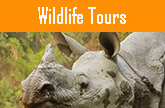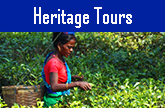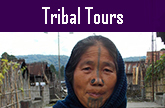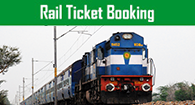Assam Tea Tour
Tour Duration : 6 Nights / 7 Days
Travel Season : April to November
assam tea tour itinerary:
Day 01: Arrive Dibrugarh
Meet upon arrival at Dibrugarh Airport / Railway Station and take transfer to Heritage Chang Bungalow.
Dibrugarh:
The 'Tea City of India', Dibrugarh is located in the eastern part of Assam. It is situated on the banks of the river Brahmaputra in upper Assam. Main attraction is mainly tea gardens along with oil and natural gas reserves. There are more than 165 tea gardens in and around Dibrugarh district. The foothills region of Dibrugarh is composed of lateritic soils, which is suitable for the production of tea plants. Besides, Dibrugarh city is the main educational centre of Upper Assam with important educational institutions like Dibrugarh University, Assam Medical College, Kanoi College, Salt Brook Academy etc.
Arrive and check-in heritage tea garden bungalow built by the British tea planters about 160 years ago.
If time permits, visit today - Assam Bought Tea Leaf Manufacturers Association.
Evening: Free at leisure. Overnight: Stay in heritage tea garden bungalow.
Day 02: Dibrugarh
In the early morning, have a leisure walk around the Mancotta Tea Garden to observe the tea plantation. Have glimpse at the teams of colorfully dressed tea garden female workers plucking delicate buds and leaves with their nimble fingers.
Assam Tea Factory:
After breakfast, take a short drive to visit the tea factory of Mancotta Tea Estate and witness processing of Assam tea.
Afternoon visit -
Assamese Village:
Khampti Ghat village is a rural Assamese village with 26 houses and approximately 200 people living on the bank of the river Burhidihing. Observe the rural way of living of the Assamese people and their houses made of split bamboo and mud. Most of the villagers have a fishery, granary, vegetable garden, cattle shed and a loom of their own.
Deori Tribal Village:
Tengapania is a village of Deori community, which is considered as the priest clan. The houses are constructed on stilts of both wood and concrete. Their main occupation is farming. They have rich vegetable gardens and also rear animals. Deori women wear hand-woven traditional cloths.
Haaj-Paar:
It is a small weaving centre located at Chiring Chapori, an urban locality of Dibrugarh. Here traditional mekhela chadars are woven in variety of designs by employed women and is run privately. They also weave sarees from both 'muga' and 'paat' silk unique to Assam. The products made in the centre are available for sale.
Overnight: Stay in heritage tea garden bungalow.
Day 03: Dibrugarh - Jorhat (140 kms, 3 hrs drive)
In the early morning after breakfast, take transfer to Jorhat. En route visit -
Sivasagar:
Literally, the name 'Sivasagar' means 'Ocean of Lord Shiva'. This historical city of Assam remained the capital seat of the mighty Ahoms who ruled over Assam for nearly 600 years till the arrival of the British. It reflects the glory of ancient Assam under the Ahom rule. The Ahom monarchs started the tradition of building royal palaces, tanks, roads, forts, temples, towns, embankments, bridges of stones and bricks all over the kingdom. Apart from representing a number of monuments of rare historical and archaeological significance, modern Sivasagar has grown as a fast developing town with leading oil and tea producing areas.
At Sivasagar, visit -
Shiva Dole:
This famous Shiva temple was built by the second queen of Shiva Singha, Queen Ambika in 1734 AD. It is reputed to be the tallest Shiva Temple in India with a height of 180 feet and 195 feet in diameter caped by seven feet height golden dome.
Sivasagar Tank (Barpukhuri):
The famous Sivasagar tank was dug in 1734 AD by Queen Ambika, the second queen of King Shiva Singha to honor the memory of her husband. The tank covers an area of 129 acres of land. The water level of the tank remains always above the level of the town and never changes. Due to its big size and depth, it is regarded as 'Sagar' meaning 'sea'.
Rang Ghar:
Rang Ghar is a historic amphitheatre constructed during the rule of Ahom king Pramatta Singha in 1746AD. During those times, Rang Ghar acted as a royal pavilion where the Ahom royalties and officers witnessed several outdoor games such as wrestling, buffalo-fight, falconry, elephant fights and other sporting and cultural events. It is an antique oval-shaped two storied building. The ground floor is rectangular in shape with two trapezoidal ends. Due to its typical and special structure, it has become a symbol of modern Assam.
Tolatol Ghar:
Tolatol Ghar was originally constructed by Ahom King Rudra Singha in 1699AD. Several changes and additions were made by the later Ahom rulers and this palace got its present structure of bricks and indigenous type of cement during 1751-1769AD under Ahom king Rajeshwar Singha. It is a seven storied palace of which four stories are above ground and the remaining three stories are underground with two underground tunnels, one leading to Dikhow River and the other to Gorgaon Palace at Nazira. It was also once the capital and military station of the Ahom kings.
Kareng Ghar (Gorgaon Palace):
Kareng Ghar was constructed by the Ahom king Suklengmung in 1540 AD. Initially, the original structure of this palace was made of wood and stone. Later, a brick wall of about five kilometers surrounding the palace and masomory gate was built by King Parramatta Singha in 1747 AD. The palace got its present structure of brick palace of seven stories during the reign of King Rajeshwar Singha in 1752 AD.
Later, drive to Jorhat.
Jorhat:
Jorhat is known as one of the leading towns of Assam and the centre of tea industry. The earlier Jorhat town was sought to ruins as a result of the Burmese invasions in 1817 AD. But as the British ventured into Assam in 1824 AD, these invasions were cleared out under the British administrative officers, David Scott and Captain Richard. Present day Jorhat is the hometown of the world famous Tocklai Tea Research Center, Assam Agricultural University, North-East Institute of Science & Technology and the head office of Assam Sahitya Sabha. There are about 140 tea gardens in and around Jorhat.
Arrive at Jorhat. Check-in heritage tea garden bungalow that exhibits a colonial history of more than 150 years ago.
Evening: Enjoy a cultural show of Bihu dance / Jhumur dance / Sattriya dance performed by local artists. (Optional)
Overnight: Stay in heritage tea garden bungalow.
Day 04: Jorhat
Tea Factory:
In the morning after a leisurely breakfast, visit the tea factory of Gatoonga Tea Estate and witness processing of Assam tea.
Afternoon visit -
Tocklai Tea Research Institute:
The Tocklai Tea Research Institute, previously known as Tocklai Experimental Station is the oldest and largest research institute of its kind in the world. It was established in 1911 AD. It carries out all research projects at national level on all aspects of tea cultivation and processing. It encompasses a large network covering South Bank, North Bank, Upper Assam, Cachar, Darjeeling and Terai. This research station has contributed largely in the increase of tea production which greatly adds to the economy of India. Recent data states that total clone species of tea derived in Tocklai Tea Research Institute numbers to 31. Till date, the institute has succeeded in inventing total number of 213 tea species. Through the effort of the Scientists involved in various tea research projects, 14 numbers of tea seeds have been invented in this institute.
Jorhat Gymkhana Club:
This club has set its position in the 'World Heritage List' to be the oldest Golf course in Asia and third oldest in the world. It was started in 1876 AD by D. Slimmon, the then Secretary of the club. It is a popular spot for horse races which is organized every year with great enthusiasm where participants join from various parts of the state.
Evening: Free at leisure. Overnight: Stay in heritage tea garden bungalow.
Day 05: Jorhat - Kaziranga - Tezpur - Dhekiajuli (200 kms, 5 hrs drive)
In the early morning after breakfast, take transfer to Tezpur. En route visit -
Kaziranga National Park:
Internationally popular forest reserve and a UNESCO World Natural Heritage Site, Kaziranga National Park is situated on the northern banks of the mighty river Brahmaputra, spreading wide on both the Golaghat and Nagaon districts of Assam. It covers an area of over 430 sq km. Its landscape is characterized by swamps, beels, tall elephant grass, flat grasslands with streams.
Kaziranga National Park supports a variety of flora and fauna. It is mainly the undistributed residence of the Great One horned Rhinoceros. It is also a home to a large population of Indian Elephant, Wild Water Buffalo, Swamp Deer, Indian Boson, Royal Bengal Tiger, Sloth Bear, Hog Deer, Leopard Cats, Otter, Hog Badger, Capped Langur, Hollock Gibbons, Wild Boar, Jackal, Pythons, Monitor Lizard, and Fishing Cat etc. Small mammals like the rare Hispid Hare, Indian Gray Mangoose, Large Indian Civet, Small Indian Civet, Bengal Fox, Golden Jackal, Chinese Pangolin, Indian Pangolin, Hog Badger, Chinese Ferret Badger, Parti-colored Flying Squirrels etc. are also found here. Click in the link to view ->
kaziranga mammals check-list and
More than 500 species of birds have been recorded in Kaziranga National Park including 26 species of globally threatened category. Migratory birds like Lesser White Fronted Goose, Ferruginous Duck, Baer's Pochard Duck and Lesser Adjutant, Greater Adjutant, Black Necked Stork, Asian Openbill Stork etc. migrate to this park during the winter season every year. It is also a habitat of threatened species like Blyth's Kingfisher, White Bellied Heron, Dalmatian Pelican, Spot-billed Pelican, Nordmann's Greenshank, Black-Bellied Tern and other birds like the Eastern Imperial Eagle, Palla's Fish Eagle, Grey Headed Fish Eagle, Lesser Kestrel, Indian Vulture, Slender billed Vulture, Indian White-rumped Vulture, Swamp Francolin, Bengal Florican, Pale- Capped Pigeon, Black Breasted Parrotbill and Rufous vented Prinia etc. It is also a home to the endangered Gangetic Dolphin. Besides there are more than 40 species of fishes and 42 species of reptiles are found in Kaziranga National Park. Click in the link to view Clements Check-list of birds (6th edition, updated in 2012) found in Kaziranga ->
Jeep Safari:
(If Kaziranga National Park remains open during your visit) Enjoy one round of Jeep safari in the central range (Kohora) / western range (Bagori) of Kaziranga National Park. (Optional Activity)
If time permits, visit in Kaziranga -
Kaziranga National Orchid and Bio-diversity Park:
Witness more than 500 varieties of wild orchids collected from different parts of North-East Indian states, 132 species of sour fruits and leafy vegetables, 12 species of cane, 46 species of bamboo and a large variety of local fishes in Kaziranga National Orchid and Bio-diversity Park, located in Durgapur.
Later, drive to Dhekiajuli via Tezpur. En-route cross - mighty Brahmaputra River through Kolia Bhumura Bridge which is 2.9 kilometers long.
Tezpur:
Tezpur, the 'city of love' is situated on the northern bank of the Brahmaputra River. The ancient name of Tezpur was Sonitpur, the kingdom of the mighty legendary king, Baan Raja. It was the capital city under his reign. Tezpur holds in its heart many ancient historical events, and witnessed many legends and mythological wars of ancient Assam. The occurrence of a famous war named 'Hari-Hara' is related with the attainment of the present day Tezpur. This battle led to the bloodshed of so many soldiers that the entire place was stained with blood and hence the city came to be known as Tezpur ('Tez' meaning blood and 'pur' meaning city in Assamese language). Present day Tezpur was founded by the British colonial administration in 1835 as the headquarters of Darrang district.
Arrive at Dhekiajuli and check-in Sapoi Tea Farms, a heritage tea garden farm house that exhibits its colonial history since 1914.
Overnight: Stay in tea garden farm house.
Day 06: Dhekiajuli - Guwahati (148 kms, 3 hrs 40 mins drive)
In the morning after breakfast, visit near Dhekiajuli.
Organic Tea Plantation and Tea Factory:
Later, drive to Guwahati.
Guwahati:
Guwahati, 'the city of Eastern light' stands on the southern bank of the mighty river Brahmaputra. It is the capital city of Assam and the gateway to the entire north-eastern states. Modern Guwahati is the hub city of Assam. It fulfills every aspect of a metropolitan city with its advanced means of transport, communication and media, as a major center of business activity, educational institutions, and various administrative and political activities of entire Assam. Besides, its landscape surrounded by hills and the mighty Brahmaputra River, rich and diverse flora and fauna enhances its natural scenic beauty.
If time permits, visit in Guwahati -
Guwahati Tea Auction Center:
Established in 1970, Guwahati Tea Auction Center is one of the busiest tea trading centres in the world. Its primary commodity for auction is Assam Tea. Guwahati Tea Auction Center observes the largest volume of CTC tea auction in the world.
Evening: Free at relaxation. Overnight: Stay in hotel.
Day 07: Guwahati departure
In the morning after breakfast, if time permits visit in Guwahati -
Kamakhya Temple:
Kamakhya Temple, one of the greatest 'Shaktipeeth', the shakti shrine of Goddess Kamakhya is situated on the Nilachal Hills. It is the oldest center of Tantric Shaktism. A famous legend regarding the birth of the Kamakhya temple narrates that Lord Shiva, rage with anger at his wife Sati's death, wandered the entire earth carrying Sati's corpse. An organ of Sati fell here and eventually the place became a temple of worship in due course of time. The temple features various stone inscriptions, terracotta works, sculptures and idols of Ganesha and Chamundeswari which are worth mentioning. The famous 'Ambubachi Fair' is celebrated with great enthusiasm every year in mid-June in this temple and devotees from different parts of India throng into it for the special occasion.
Later, take transfer to Guwahati Airport / Railway Station for your onward destination.
Tour terminates here
North East India Tourism
Important Note:
Due to arid winter from mid December to first week of March, the minimal growth of tea leaves results in declination of plucking activity in the Tea Estates of Assam every year. That's why, processing of tea leaves in the manufacturing units cannot be demonstrated to the visitors in its real sense. Besides, tea factories also remain close every Monday.
Package Inclusions:
# All ground transportation by a dedicated and exclusive vehicle driven by our experienced and friendly driver
Package Exclusions:
# Any air fare or train fare


















